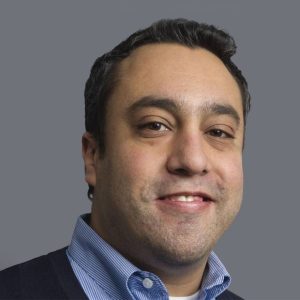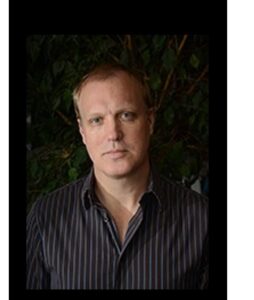CERES Scientific Director
 Dr. Karim Knio
Dr. Karim Knio
November 2023 – Present
Dr. Karim Knio has been appointed the scientific director of CERES as of 1 November 2023.
Dr. Karim Knio is an Associate Professor in International Political Economy and Governance at the Institute of Social Studies of the Erasmus University Rotterdam (ISS). He has recently been appointed as the new scientific director of the CERES Research School for International Development (CERES). He is an Associate Editor for the Journal of Critical Realism (JCR) and formerly was the associate managing editor of European Political Science Review (EPSR) from 2014-2019. He is also the ISS academic coordinator of the Erasmus Mundus MA in Public Policy (MAPP).
Dr. Knio’s research themes focus on the political economy of governance with an emphasis on regionalism and trade, varieties of capitalism, institutional analysis, politics of crisis management, EU democracy promotion programs and Lebanese politics. He has published in various peer-reviewed journals such as Mediterranean Politics, Third World Quarterly, Globalizations, Politics and Governance, Journal for the Theory of Social Behavior, Journal of Critical Realism and The RoundTable among others. He is the author/editor of various books such as: Political Ontology and International Political Economy: The Case of Neoliberalism (2024, forthcoming), published by Routledge, The Pedagogy of Economic, Political and Social Crises: Dynamics, Construals and Lessons ( co-edited with Bob Jessop), published by Routledge (2019), The South China Sea and Asian Regionalism ( co-authored with Thanhdam Truong), published by Springer (2016), as well as the author of The European Union’s Mediterranean Policy: Model or Muddle? published by Palgrave Macmillan (2013).
Teaching
As the academic coordinator of the Erasmus Mundus Master’s program in Public Policy (Mundus MAPP) at ISS, Dr. Knio teaches and elaborates on the pedagogy of problem situating approaches to public policy within this program. He teaches the following courses:
- Contemporary Capitalism and Governance: Neoliberalism and Beyond (ISS 4212)
- Thinking about Governance and Institutions (ISS).
- Politics of Global Development: Debating Liberal Internationalism (ISS 4307).
- Power, Politics and Development (ISS 1104)
Research
Dr. Knio navigates a research landscape focusing on the intersection between international political economy, governance, public policy and social ontology synchronized along four overlapping tracks. The first tack traced the neoliberalization processes embedded within the Euro-Mediterranean relations and analyzed the roots of their institutional failures within their manifestation in trade, regionalism and democracy promotion policies.
The second track concentrates on the political economy of crises, exploring diverse crisis dynamics from alternative theoretical perspectives. By juxtaposing and linking different tiers of crises management, this research traces various (un/de) learning practices associated with these tiers. An example of this research can be seen in his edited book with Bob Jessop titled The Pedagogy of Economic, Political and Social Crises: Dynamics, Construals, and Lessons published by Routledge in 2019. A video of Dr. Knio and Prof. Jessop discussing the application of this book to Brexit can be found here.
In the third track Dr. Knio developed a research line centered around Immanent Causality Morphogenetic Approach (ICMA), which links Margaret Archer’s morphogenetic analysis of structure and agency with Spinoza’s concept of immanent causality. Subsequently, this framework has been applied into the study context of capitalist transformation by linking the ICMA to the French Régulation school of capitalism. This has culminated into a research line on Morphogenetic Régulation and currently applied to a variety of themes and topics.
The fourth track integrates all of the above by examining the links between the political economy of crises and the politics of social ontology. Particularly, it investigates the political economy of gas extraction in the Mediterranean basin using the Morphogenetic Régulation analytical framework.
Dr. Knio is interested in supervising PhD students interested in the following topics:
- EU/Mediterranean relations with an emphasis on gas extraction
- Comparative capitalisms, neoliberalism and capitalist transformations
- Crises management and learning
- New institutional analyses of public policy
- Middle Eastern/Lebanese politics
- Critical Realism
- Social ontology and Morphogenetic Régulation
Full list of publications can be found on his institutional biography page.
 Prof. Dr. Andrew M Fischer, fischer@iss.nl
Prof. Dr. Andrew M Fischer, fischer@iss.nl
October 2019 – October 2023
As of the beginning of October 2019, Prof Andrew M. Fischer has taken over as the Scientific Director of CERES, leading the transition of the Research School from Utrecht University, where it was based since 1994, to the International Institute of Social Studies (Erasmus University of Rotterdam) as its new institutional home.
Prof Fischer brings to this position a long experience in the field of Development Studies, as well as many years of living and working in various parts of the Global South. He is also firmly committed to the ongoing relevance of the field of Development Studies, with a belief that this needs to be strongly rooted in the historical lineages of this field. As he wrote in a recent article (Bringing Development Back into Development Studies, Development and Change, 2019, pp. 442-3):
Development studies — as it was and could continue to be — retains value as an interdisciplinary field because it starts from an understanding of transformation as the foundation of theorization and analysis, and how associated social, political, economic and cultural dynamics interact with and are conditioned by such transformation. Other social science disciplines or interdisciplinary fields could supplant this role, but so far they have not. It is time to reaffirm the field in this purpose.
This partly involves recognizing that development was always conceived primarily in terms of national or collective projects of structural and social transformation in contexts of lagging and subordination within globalizing capitalism. It is relevant here to use the term ‘global’ with respect to capitalism […] However, this does not diminish the importance of the national collective project, even though it changes the nature of the challenges that such projects now face, particularly with respect to practising industrial policy or maintaining control over fiscal systems in the context of liberalized financial and trade regimes. The goal might be catching up, although merely keeping up with changing structural and institutional norms is already a massive task in most cases.
As such, the CERES Board felt that he is very well placed to lead CERES, as Europe’s leading trans-university and transnational research school for International Development, and also to develop its various activities in the new decade.
Bio
Andrew Martin Fischer is Professor of Inequality, Social Protection and Development at the Institute of Social Studies in The Hague, part of Erasmus University Rotterdam. He is also the Scientific Director of CERES, The Dutch Research School for International Development; founding editor of the book series of the UK Development Studies Association published by Oxford University Press, entitled Critical Frontiers of International Development Studies; and editor at the journal Development and Change. His latest book, Poverty as Ideology (Zed, 2018), was awarded the International Studies in Poverty Prize by the Comparative Research Programme on Poverty (CROP) and Zed Books and, as part of the award, is now fully open access (http://bora.uib.no/handle/1956/20614). He earned his PhD in Development Studies from the London School of Economics (LSE) and has been involved in development studies for over 30 years, including time spent living and working in Central America, India, Nepal and Western China. Fischer’s current research is focused on the role of redistribution in development at local, regional and global scales and its interaction with finance and production. He led a European Research Council Starting Grant on the political economy of externally financing social policy in developing countries (see here for further information). His profile can be seen at www.iss.nl/fischer
He also tweets @AndrewM_Fischer
